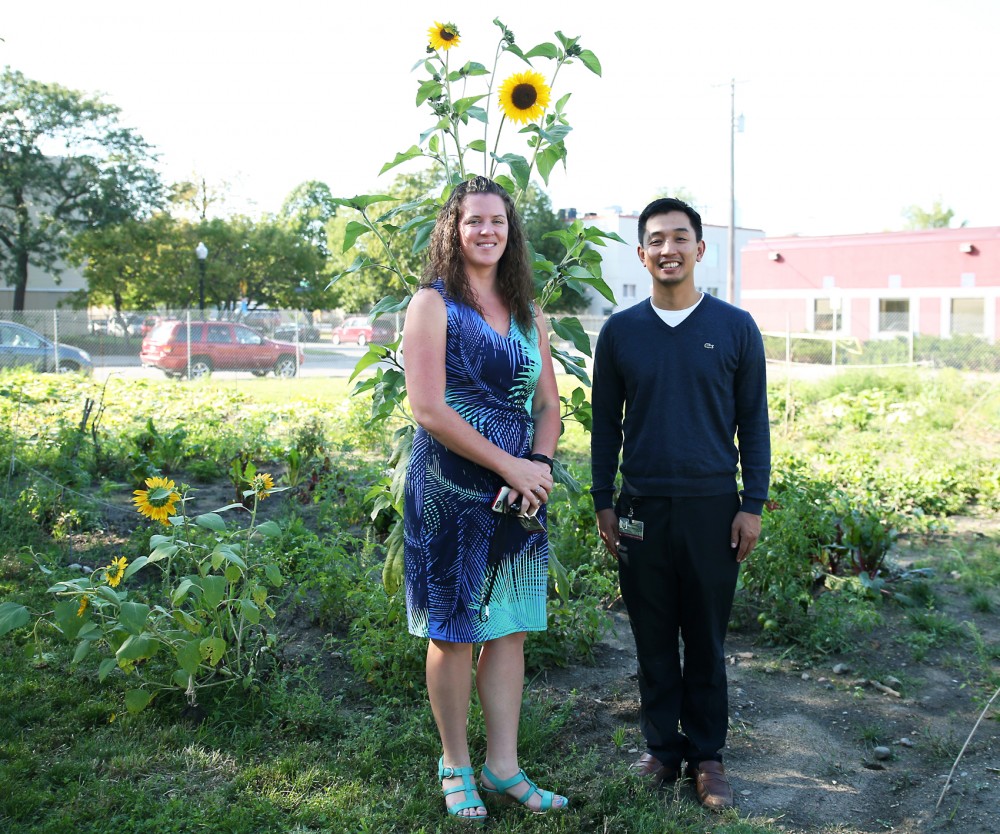Flowers and greenery serve as the backdrop for a South Minneapolis space that gives mental health patients a place to bond and share their cultural identities.
Adult Rehabilitative Mental Health Services — a University of Minnesota-led program aimed at providing mental health patients with healing-oriented care — planted a community garden this June to teach visitors better social skills through gardening with other community members.
The program is run through the Community-University Health Care Center, but the garden may have to move locations in the next three years if University officials build a parking lot in its place, ARMHS Program Manager Melissa Flores Fioravanti said.
The idea for the garden came about after Flores Fioravanti’s coworkers successfully built a smaller-scale garden in North Minneapolis last summer, she said.
A four-story building next to CUHCC was demolished to construct a parking lot, Flores Fioravanti said. She also said she saw the opportunity to use it for a community
garden until construction started.
Flores Fioravanti said local businesses and several of her friends, along with Twin Cities-based gardening club Community Gardeners in Minnesota, donated time and gardening supplies to get the garden up and running.
About 15 patients have planted and harvested from the community garden, eight or nine of which come at least weekly, ARMHS practitioner Peter Dinh said.
Patients visiting the garden suffer from a wide range of diagnoses, including anxiety, depression and schizophrenia, Flores Fioravanti said.
The regulars also schedule time to visit the garden individually, Dinh said, adding that the patients come from a variety of ethnic backgrounds.
“A big part of the experience is the intercultural experience and learning,” Flores Fioravanti said.
All CUHCC patients live in Hennepin County, mainly South Minneapolis, though Dinh said the group hopes to expand its reach in the future.
Despite the garden’s impending demolition, Flores Fioravanti said the group plans to relocate the garden to a nearby plot of land.
CUHCC leaders also hope to add composting to their program, she said.
Though the gardening is meant to connect patients to each other, Dinh said each grower
appreciates community gardening differently, adding that for some Hmong immigrants, the experience reminds them of home.
“It makes them feel a connection to their homeland where many war refugees have had negative experiences,” he said. “So to be able to connect with a positive experience was nice.”
CUHCC CEO Colleen McDonald Diouf, said the most beneficial outcome of the project is helping patients realize they’re not alone.
“Working on projects such as the community garden removed the ‘I’m the patient; you’re the provider’ and allows people to get out of that, and that is very supportive,” Diouf said.








